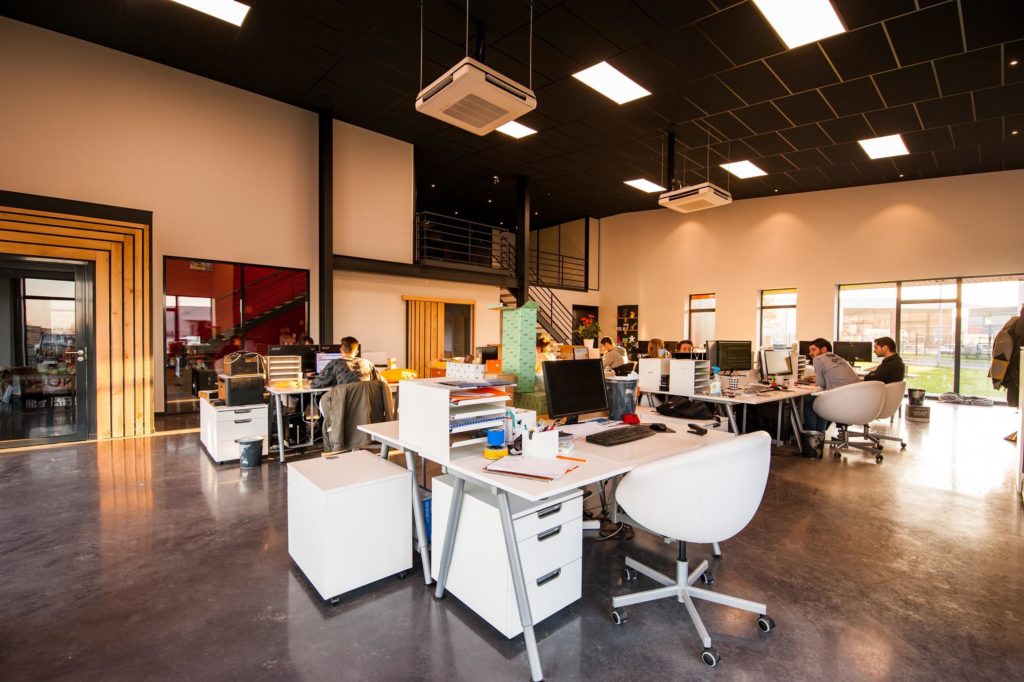Regardless of what you do or what you sell, it’s currently a really difficult time for businesses. Whether your orders have increased, decreased or looking like they might stop completely, there are many changes that you’ll need to make to your business to overcome the challenges that the current pandemic has created. For most SMBs that are based in offices, this generally means transitioning everyone into their homes to work remotely, but even this can be tricky to get right if it’s something your company has never had to do. Read on to find out more.
Set up a good home office
Maybe you’ve always run your company from home, or perhaps you’ve had to move to home-based working due to the pandemic- either way, a good home office is essential. Clear out the room and give it a deep clean, set up a comfortable desk and office chair and invest in some storage systems to keep everything neat and tidy. You’ll likely struggle being able to decorate and get hold of certain things at the moment to give it a full makeover, but make it as clean, calm and a productive space as you can based on what you have. If you’re not used to working from home this can be particularly useful, as it’s an area of the home you can go to and know once you sit at your desk that it’s time to get some work done. This prevents you from being distracted around the house and boosts productivity. Working in your home office which is away from the tv, tempting snacks in the kitchen, your pets and children can help you to stay focused. It might be helpful to keep your phone in a different room to where you work, and stay signed out of your social media accounts on your work computer so that you’re not mindlessly clicking on them out of habit.
Upgrade your technology
Technology is so important in the workplace, but when you’re moving your business to remote working then you’ll rely on it more than ever. If you have a team of people that you work with who usually come into the office, you’ll need the right systems for them to use to get their work completed and stay in contact. You could either have something custom built if your budget is bigger, or utilise existing programs that can be adapted and used the way that you need. This can be useful as creating an efficient system for you and your employees will also come in useful when things return back to normal, it could even allow employees the choice of working from home- at least some of the time if they want to. Research has shown this can be highly beneficial for both them and you as the boss.
‘Eat the frog’
The term ‘eat the frog’ refers to tacking the worst job of the day first. When you’re working from home it can require more motivation and self discipline to do this compared with when you’re at work- but aim to do it. Once the worst jobs of the day are done it can be a relief, if you drag them out the day can feel longer and much more difficult. It could be useful to write out to-do lists each day of your tasks and the order you want to do them.. As most people tend to be more productive in the morning, getting through the most time consuming or hardest tasks enables you to use your focus and energy better too, meaning you’ll get through them more quickly than leaving it until later.
Think of your suppliers
There’s a lot of focus surrounding people’s shopping habits at the moment, in today’s uncertain times, a lot is changing day by day, hour by hour. The suppliers you might have previously used may have had to shut due to Covid-19, if so, finding another company that can supply what you need and be just as reliable is important. If you choose a smaller business it’s a good way to help them get through the pandemic and prop up the economy during this time, as long as they’re able to provide you with what they need it could be a better option over choosing a larger business.
Set your working hours
One of the best things about working from home, for yourself is the flexibility you have. However, while flexibility is great, too much can be a problem. If you find you’re constantly leaving work until later or tomorrow then it’s easy to fall behind. For the most part, it’s good to stick to a schedule so set your working hours. If you do need to change things around then you can do, but otherwise you’re in a good routine and getting things done when they need to be. Many people transitioning from a standard workplace to home find that getting up early and getting their work done in regular office hours helps them to maintain a schedule and makes them more productive. Some people even find getting up, getting showered and getting dressed as if they were going to work allows them to get into a better frame of mind compared with working in pyjamas.
Improve your staff training
Your staff are absolutely vital to the success of your business, so it makes sense to ensure that everyone is doing the best job possible. When people have been moved from working in an office to working from home, their roles might have changed slightly along with your expectations. Make sure that everyone is properly briefed, so that they understand what you want from them each day and they know exactly what their home based position entails. Businesses often need to change slightly over time to adapt to customer demand, but this can mean roles within the company change too. So briefing, even if it’s just a video chat to go over a few points ensures everyone knows exactly what they’re doing.
Delegate
Delegating is so important. Whether you’re managing a team at work or running your own business, it’s tempting to want to do everything yourself so you know it’s ‘done right.’ but this isn’t the best way to go about things, delegate and trust that your team members will do their jobs correctly. When you delegate and enable people to get on with their jobs, not only does this make things less stressful for them (no one likes having a boss breathing down their neck) but it frees up your time to focus on the jobs you should be doing too. This means you’re not stretching yourself too thin, risking stress and burnout. Once you’ve briefed staff and they know what they’re doing, leave them to get on with their work.
Outsource and automate
Now won’t be a good time to take on permanent new staff members, so what do you do if you need additional help? There are two options, automation and outsourcing. Automation allows you to use software to essentially run areas of your business for you without the need for additional human help. Take Call Cowboy for example, this has a range of features enabling you to get the most out of your cold calling. Outsourcing is the other option, here you hire an existing company to deal with an area of your business or tasks that you need completing. It could be your marketing, blog writing, video creation, accounting- there are so many different options so you don’t need to try and struggle through things yourself.
Consider security
If you normally run your business from premises such as a shop or office, you’ll likely have spent some time thinking about security. So don’t overlook this completely when you start working from home, it’s unlikely you’ll have things physically stolen from criminals during this lockdown since you’ll be home most of the time, but cyber threats are still very much an issue. If you’re using new software, make sure it’s secure. Make sure passwords are strong and that you’re using firewalls. Now that many companies are making the transition to online working and ‘working out the kinks’ so to speak, hackers and cyber criminals may well be using this as an opportunity to access important files or even bank details of SMBs who might not be fully prepared. Think carefully about your security, hire a company to deal with this side of things for you if you’re not sure.









